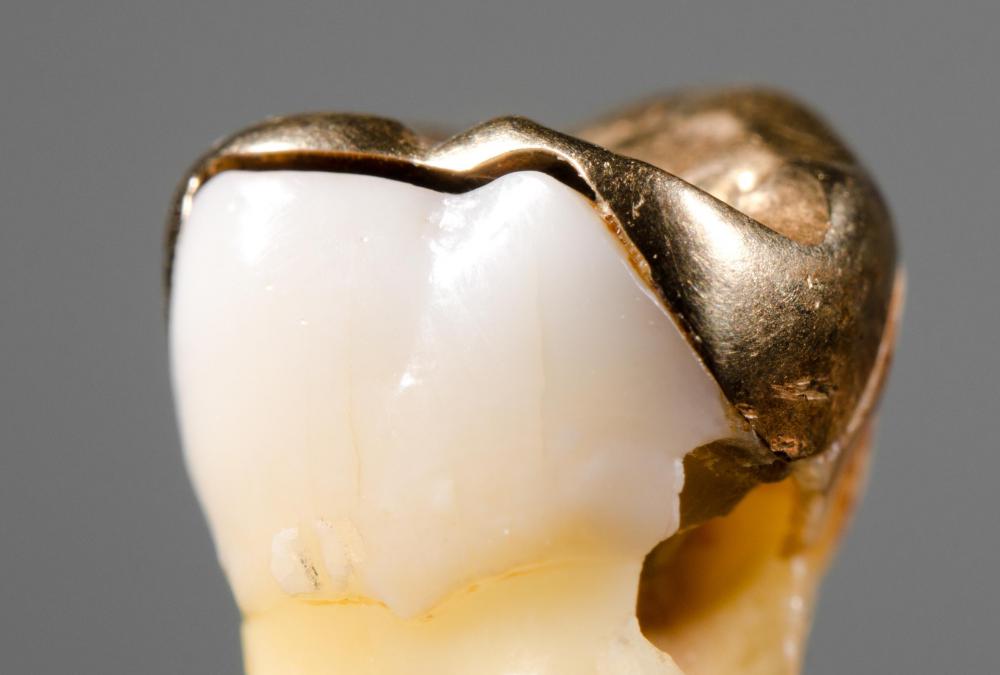At WiseGEEK, we're committed to delivering accurate, trustworthy information. Our expert-authored content is rigorously fact-checked and sourced from credible authorities. Discover how we uphold the highest standards in providing you with reliable knowledge.
What are the Pros and Cons of Taking Antibiotics for a Toothache?
The main pro of taking antibiotics for a toothache is the elimination of any tooth flora that might be growing in and around teeth. This greatly reduces the amount of discomfort the patient feels, as well as prevents many possible medical issues. In many cases, it is the most cost-effective method for toothache treatment. The cons of using antibiotics for a toothache include possible allergic reactions, bleeding, and headaches. In rare cases, patients report having vision problems, vomiting, and increased pain.
Many dentists prescribe antibiotics for a toothache if the pain is caused by a bacterial infection. An infection, if left unchecked, can spread to other areas of the body, including the brain. Should this occur, the patient has a high risk of developing a much more serious medical condition. Antibiotics can completely eliminate the presence of harmful bacteria in and around the teeth and gums. This can lead to lasting relief in a few days.

In addition to the relief, the antibiotics are often a cheaper alternative to dental surgery. Patients can avoid having infected teeth extracted if the antibiotic medication is determined to be a viable option. The treatment is also considered a more convenient option than surgery, as it demands a much smaller time investment.
As with any medication, however, taking antibiotics for a toothache has its cons. Doctors will often ask the patient about any preexisting medical conditions or any other medications the patient might be taking before writing up a prescription for the drugs. Antibiotics can have harmful interactions with other medications, causing more damage to the patient than good. Some conditions are worsened by antibiotics, as the medication can eliminate the good bacteria that stave off more serious problems; a yeast infection, for example, will get worse with the use of certain drugs. In general, pregnant women are advised to avoid antibiotics as the medication might harm the developing fetus.

Negative side effects of antibiotics can vary between the types of drugs. Amoxicillin, for example, has been known to induce diarrhea in patients. Penicillin, on the other hand, can cause nausea and the development of a black coating on the tongue. Allergic reactions to antibiotics can cause swelling in the gums, which, in turn, increases pressure on the infected tooth and causes significantly more discomfort for the patient. Large doses of strong antibiotics can also cause liver or kidney damage in the long term.
AS FEATURED ON:
AS FEATURED ON:














Discussion Comments
@Fa5t3r - Some dentists are better than others though and it's a good idea to try and get a second opinion if one of them doesn't seem to be doing the right thing. The right thing is reducing pain and if you've got a severe toothache, then they should really be willing to do whatever it takes to make sure you feel better.
@irontoenail - It usually is the right choice to prescribe antibiotics first to see if it can help, before jumping right into surgery or tooth extraction. Often the pain is being caused by the infection swelling up the gums and making them painful and antibiotics can definitely help that.
It's not like they usually just hand out those medications without including something for the toothache pain. I think it's pretty standard for most dentists to try the least invasive procedure first, in case it works and then, if it doesn't, to move on to something else.
I think another important point is that it depends on the type of toothache as to whether the antibiotics are going to be effective. If your tooth is already so damaged that it needs to be fixed or taken out, then the antibiotics aren't going to do much except prevent further damage.
Be careful with your choice of dentist, because there are too many out there who will do what is the right choice for themselves rather than for their patient.
Post your comments